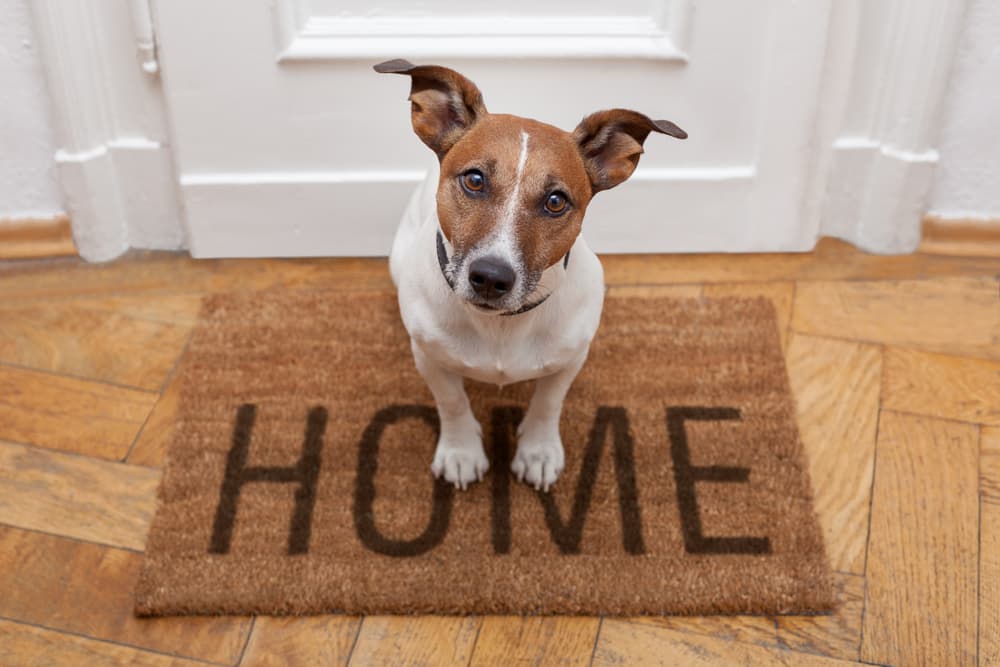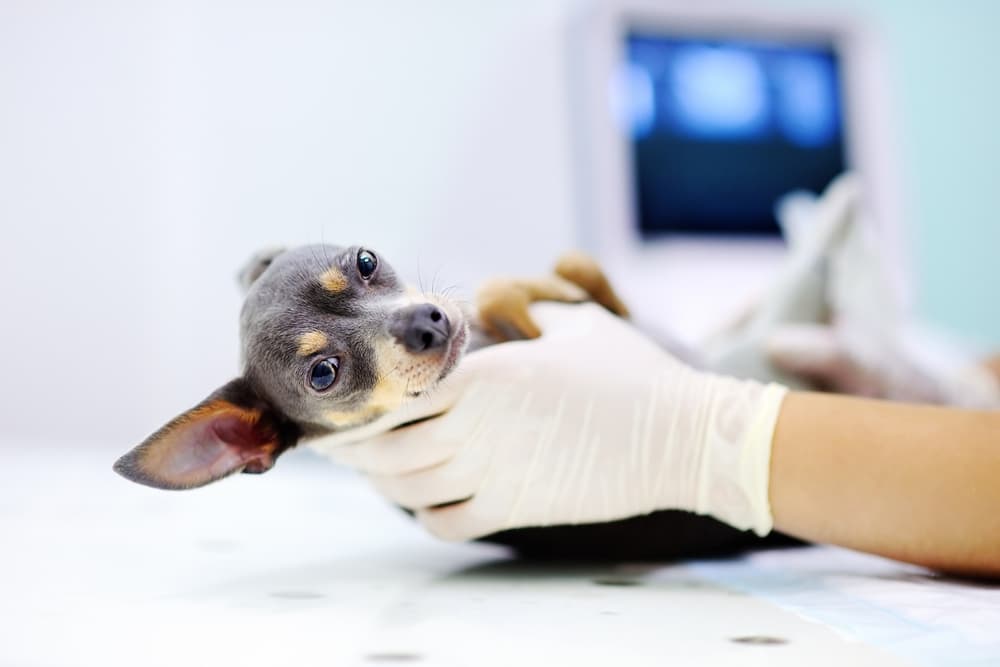Types of Soft Poop in Dogs

Dog stool can be characterized by several factors, says Dr. Jerry Klein, AKC’s Chief Veterinary Officer. These include:
If your dog is having issues with soft stool, it can further be categorized as:
Watery, formless feces that comes out resembling soft-serve ice cream is often referred to as “soft-serve” dog poop. This type of stool can be a sign that the pet’s microbiome is not balanced. “This can occur if the dog gets into garbage, is eating things in the yard, or is eating other things that are not typical to his or diet,” says Dr. Rossman. “Changing a dog’s diet too quickly can also cause this, as can stress.” In other cases, a parasite may cause soft stool to appear before it evolves into diarrhea, she added.
Dog poop that presents with mucus can occur for the same reasons as soft-serve dog poop including a microbiome imbalance, eating inappropriate things, a dietary change that happens too quickly, or a parasitic infection.
General Cost to Treat Soft Dog Poop
The cost of the treatment prescribed will vary depending on the cause and severity of the symptoms, but a typical dog fecal test can range from $25 to $45, while more specialized testing (if indicated) may cost several hundred dollars. Medication prices vary depending on the medication prescribed and the length of time it is needed.
Treatment costs fluctuate depending on the level of testing, the severity of symptoms, and what medications or follow-up care is required.
If your dog’s soft poop is the result of dietary indiscretion, your veterinarian may run a fecal test and provide instructions based on the results. Costs are wide-ranging for the treatment of anything abnormal associated with soft dog poop. Depending on your region, state, and whether an emergency or specialty service is involved, pricing will vary.
Some of the more frequently administered tests and their associated costs include:
| Abdominal x-ray | $150 – $250 |
| Abdominal ultrasound | $300 – $600 |
| Complete blood panel | $100 – $300 |
| Examination fees | $45 – $85 |
| In-house fecal test | $25 – $45 |
| PCR test | $35 per assay |
| Urinalysis | $30 – $70 |
Pet health insurance such as MetLife Pet Insurance can help offset medical costs. Look for plans that help cover veterinary bills for diagnostics and treatments for any accidents or illnesses your dog incurs. You hope never to use pet health insurance, but poop happens, and it’s nice to have an active policy just in case.
When Your Dog’s Poop Gets Softer as the Day Goes On
Just like humans, dogs tend to defecate after they’ve eaten. While movement and time of day should not have an impact on your dog’s stool throughout the day in general, “if a patient’s stomach is already upset, then movement can cause increased gastrointestinal motility, and thus soft stool or diarrhea,” says Dr. Rossman.
Dr. Klein adds that it’s not uncommon for some dogs to have a normal bowel movement at the beginning of a walk, and then proceed to have one or more bowel movements where the stool is soft. “This is usually because the fecal contents have not been sitting in the colon long enough for the water to be absorbed,” he says. “If the dog is happy, eating, and not having any accidents, this can be normal behavior.”

Helping firm things up is possible, depending on what is causing your dog’s soft poop in the first place. Possible treatments for a dog with soft poop include:

If your dog is not in distress and there is no blood present in your dog’s poop, trying a few things at home under the guidance of your veterinarian may help to firm up your dog’s stool.
These options include:

If at-home options haven’t helped, your veterinarian can run some diagnostic tests to determine if an underlying cause other than stress or diet—like a health issue—is causing the problem. “An example of one of the many tests is a PCR test that tests for different bacterial, parasitic, and viral pathogens,” says Dr. Rossman.
Recommended treatment options may vary depending on test results. Your veterinarian may prescribe a medication, probiotic, or prescription diet to help firm up your dog’s poop.
Any stool that is abnormal for your dog that persists longer than 48 hours should be reported to your veterinarian, says Dr. Klein. Any dog that has blood in the stool, or a dog that has diarrhea combined with vomiting, poor appetite, or lethargy should be examined by a veterinarian immediately.
My DOG Has LOOSE STOOLS How to Fix It
We know it can be an icky subject to talk about- but there is a lot about your pet’s stool that can be an indicator of their health. Not only is it important to monitor what goes into their body, but it is also necessary to keep an eye on what’s coming out.
Most owners know what their pet’s normal stool looks like but are a little unsure when to call the vet for advice on abnormal poop. In general, your dog’s stools should be tubular, dark brown, fairly firm and easy to pick up. Cat’s bowel movements are typically “Tootsie Roll” shaped and colored; and should be easy to scoop up from the litter box.
If the stool is soft, mushy, and hard to pick up, this is considered diarrhea. The colon is the organ that absorbs the water from the intestine, so if the stool is abnormally loose, the colon is not functioning properly. Some dogs want to “mark” with their excrement. It is not normal for a well-trained dog to have accidents in the house.
Some dogs will have a normal bowel movement at the beginning of a walk, and then proceed to have one or more BM where the stool is soft. This is simply because the fecal contents have been sitting in the colon long enough for the water to be absorbed. As long as the dog is happy, eating, and not having any accidents, this can be normal behavior.
When cats get diarrhea and they are using a litter box, it will often be covered in litter and look more like a ball or urine rather than poop. Small animals can become dehydrated easily due to diarrhea, especially if they are also vomiting and/or not eating.
***Poop color can also be representative of the diet (i.e a dog who eats a lot of pumpkin or carrots may have orange colored stools that are “normal”. The consistency of the BM should be evaluated to determine if it’s “normal” or “abnormal”.
It is time to alert your vet! Many intestinal parasite only shed microscopic eggs into the droppings; therefore, you may not see any evidence of parasites. Even animals with normal stools can carry intestinal parasites. We recommend annual fecal examinations for all pets.
The Environmental Protection Agency (EPA) classifies dog waste as an environmental pollutant- placing it in the same category as toxic chemicals!
Dog feces are not a fertilizer, and are actually toxic to lawns. In addition, they also are one of the most common carriers of disease. Furthermore, the EPA explains that the decay of pet droppings causes oxygen levels in water to decrease- causing the fish and seafood we eat to become asphyxiated.